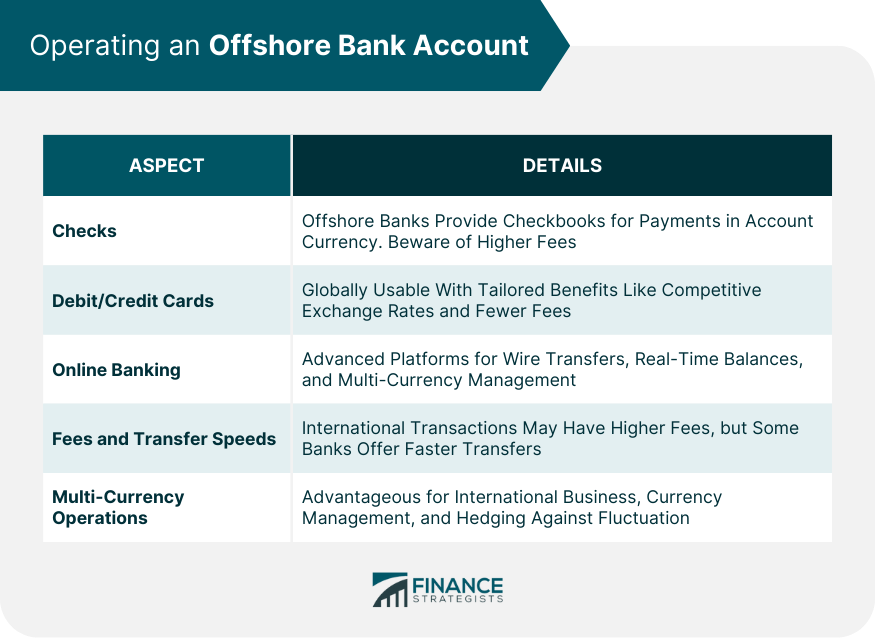Unlock International Opportunities with Offshore Company Formation
Unlock International Opportunities with Offshore Company Formation
Blog Article
Understanding the Lawful Effects of Offshore Firm Formation

Lawful Framework for Offshore Firms
When establishing an offshore company, understanding the legal structure regulating its formation and procedure is important for conformity and risk management. Offshore firms operate under certain regulations and policies that differ from those of onshore entities. The legal framework for offshore business normally consists of provisions for company enrollment, investor needs, director responsibilities, and tax obligation responsibilities.
Company enrollment entails submitting the required documentation to the suitable regulatory authorities in the chosen territory. This process typically calls for thorough details regarding the firm's structure, investors, and desired activities. In addition, overseas firms should follow certain investor demands, such as maintaining a register of investors and keeping this info approximately date.
Supervisors of offshore companies have fiduciary obligations to act in the finest interests of the company and its investors. By adhering to the lawful structure regulating overseas firms, businesses can run with self-confidence while lessening lawful risks.


Tax Implications and Rules
Recognizing the tax implications and regulations is extremely important when considering the establishment and procedure of an overseas business. Offshore companies are typically subject to favorable tax obligation regimes, using reduced or absolutely no tax obligation rates on foreign-earned income.
Tax regulations for overseas companies vary considerably throughout jurisdictions, and it is crucial to look for expert guidance to recognize the details needs and responsibilities. Failing to comply with tax obligation laws can lead to severe effects, consisting of hefty fines, reputational damages, and even lawsuit. Furthermore, offshore territories may have reporting obligations to reveal financial information to appropriate authorities. Extensive expertise of tax legislations and policies, as well as correct tax planning, are vital to guarantee the compliant and successful procedure of an offshore company.
Conformity Needs and Reporting
Making sure compliance with governing requirements and preserving precise reporting are important facets of handling an overseas firm effectively and transparently. Offshore companies must stick to the legislations and policies of both the territory in which they are incorporated and any various other relevant territories where they conduct business.
In addition to regulatory conformity, overseas firms are often subject to reporting needs to make certain openness and prevent prohibited tasks such as cash laundering or tax obligation evasion. Coverage commitments may entail revealing details regarding the business's ownership framework, economic tasks, and beneficiaries. This information may require to be shared with regulatory bodies, tax authorities, or other governmental firms, depending upon the jurisdiction.
Maintaining precise and detailed documents is essential for demonstrating compliance and reacting to any kind of inquiries or audits efficiently. Offshore firms need to apply durable coverage systems and internal controls to ensure that they meet all legal requirements and run with stability.
Asset Security and Privacy Laws
In the world of offshore business formation, an important factor to consider is the interplay between possession protection methods and privacy regulations. Offshore territories often provide enhanced property security devices that secure possessions from possible dangers such as claims, lenders, or political instability in the home nation. By structuring properties within an offshore company, people can protect their wealth and expand their holdings across different legal structures. Additionally, privacy laws in offshore jurisdictions contribute to preserving confidentiality and anonymity for business proprietors. These regulations restrict the disclosure of sensitive details, making it testing for outside celebrations to access details about the firm's operations or ownership framework. This degree of personal privacy can be helpful for people looking for to shield their assets our website from public examination or competitors. Nevertheless, it is vital for individuals to navigate these laws fairly and transparently, making sure compliance with both offshore laws and the lawful requirements of their home country. Ultimately, understanding the detailed partnership between asset security approaches and personal privacy regulations is critical when considering offshore company formation.
Dangers and Difficulties to Take into consideration
When venturing into offshore business development, prudent factor to consider of possible dangers and difficulties is crucial for notified decision-making and critical preparation. One significant threat to consider is the opportunity of boosted analysis from regulatory authorities as a result of the perceived organization of offshore entities with tax evasion and money laundering. This heightened scrutiny can result in considerable conformity demands and possible legal effects otherwise appropriately resolved. Furthermore, political instability or adjustments in offshore territories can position a threat to the connection of procedures and the defense of assets held by the offshore firm.
Obstacles may likewise develop concerning the intricacy of overseas firm structures and the demand for experienced lawful and financial advice to browse the intricate regulatory frameworks best site of different territories (offshore company formation). Keeping compliance with differing worldwide regulations and guidelines, as well as potential language obstacles and cultural differences, can further complicate the offshore company development procedure. It is crucial to be familiar with these threats and difficulties prior to waging offshore firm development to alleviate possible challenges and guarantee a lawfully sound and smooth establishment
Verdict
Finally, overseas company development entails browsing complicated lawful frameworks, tax obligation ramifications, compliance requirements, and privacy legislations. Understanding these elements is important for mitigating risks and obstacles linked with overseas business procedures. It is essential for companies and people considering offshore firm development to look for professional guidance to ensure compliance with laws and to secure their assets effectively.
The legal framework for offshore companies generally consists of arrangements for business registration, investor requirements, supervisor obligations, and tax obligation commitments.
Directors of overseas firms have fiduciary responsibilities to act in the best passions of the firm and its investors. By sticking to the legal structure governing overseas firms, services can operate with confidence while content decreasing lawful threats.
In addition, political instability or adjustments in offshore territories can present a threat to the connection of operations and the defense of properties held by the offshore firm. - offshore company formation
In verdict, overseas business formation entails browsing complex legal frameworks, tax obligation ramifications, compliance demands, and personal privacy legislations.
Report this page